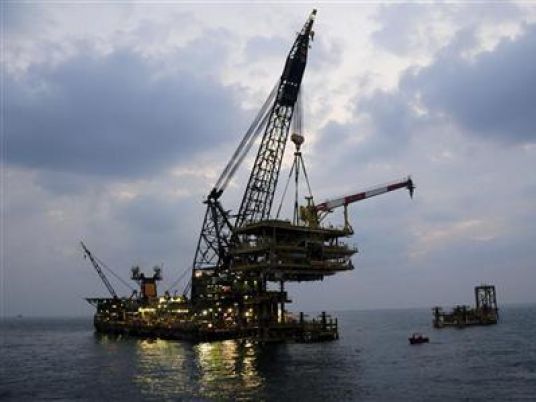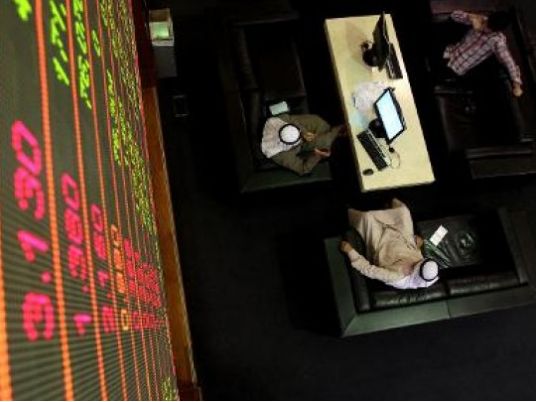
Gulf stock markets fell sharply on Thursday as panic selling spread across the region after oil dropped to a fresh five-year low; Dubai's main index sank 7.4 percent, its biggest daily loss in six years.
Brent crude tumbled on Wednesday to US$63.56 per barrel on comments by Saudi Arabia's oil minister again implying that Riyadh would make no output cut to support prices. It ticked up early on Thursday but was still trading below $65 when most markets in the region closed.
Dubai's index slid to 3,595 points, breaking major technical support at 3,731 points, the July trough, and hitting its lowest level since January. There is no major chart support left in the vicinity.
Many economists and fund managers think cheap oil will not hurt the big Gulf economies much, since governments have built up huge fiscal reserves which they can use to keep spending high for many years even if they run budget deficits.
In contrast to Gulf markets' 2008 crash, there are few signs of stress on the overall financial system. Credit default swaps are still low, bond yields have not surged, and forwards do not suggest serious pressure on the region's currency pegs to the US dollar. Real estate markets in Dubai and elsewhere are not plunging, and banks are in good shape around the region.
Nevertheless, the sudden slide in oil is prompting the retail investors who dominate local stock markets to dump shares in an effort to preserve profits. In Dubai, the selling has been magnified by margin calls and the need to raise money to repay bank loans that were taken out to buy shares on the way up.
"What we see is panic selling – people sell whatever they can irrespective of valuations," said Shakeel Sarwar, head of asset management at Securities & Investment Co in Bahrain.
"I don't see any reason for this to stop unless oil price uncertainty is removed."
Dubai's two most traded stocks, developer Emaar Properties and builder Arabtec Holding, tumbled 9.1 and 7.8 percent respectively while all sectors were deep in the red.
The market's year-to-date gains, which reached 59.5 percent on 6 May, have now dwindled to 6.7 percent. The market has lost $28.3 billion of value in the same period, excluding newly listed stocks.
The main index in Abu Dhabi tumbled 4.7 percent on Thursday, its worst daily performance in five years, in an equally broad sell-off. Developer Aldar Properties dominated turnover and sank its daily 10 percent limit.
Regulators or other authorities in the UAE and elsewhere are not expected to intervene to try to halt the drop of markets, since they tend to react slowly to events and many stocks were richly valued at their highs. A possible exception is Kuwait, which in the past has used a state fund to support blue chips during sharp market downturns.
Oman, Saudi
Other Gulf markets also posted heavy losses on Thursday. Qatar's index dropped 4.3 percent and Oman's bourse lost 4.2 percent to 5,808 points, its lowest level since February 2013.
Oman and Bahrain are two Gulf nations most vulnerable to the plunge in oil because of their relatively weak state finances. The Muscat government has already announced plans to cut gas subsidies for industrial consumers in order to raise money.
Gulf Investment Services, a firm with interests in the hospitality sector, tumbled its daily 10 percent limit, extending losses after Oman's advisory Shura council voted to ban alcohol, a move which if approved by the government could hurt the tourism industry.
Saudi Arabia's stock market, which closes later than others in the Gulf, recovered most of its intra-day losses as oil briefly rebounded to $65. The benchmark, which had dropped 2.5 percent in the previous session and erased all its year-to-date gains, ended 0.2 percent lower.
Meanwhile, Egypt's index dropped 2.2 percent in response to the gloom in the Gulf.
"The hangover from the oil price decline is hurting the sentiment in the Gulf and spilling over into Egypt," said Allen Sandeep, director of research at Naeem brokerage in Cairo.
Although Egypt, as an oil importer, stands to benefit from lower energy prices, it also relies on financial aid and investment from the Gulf, and some Egyptian investors fear this could diminish in an era of cheap oil.

